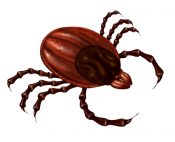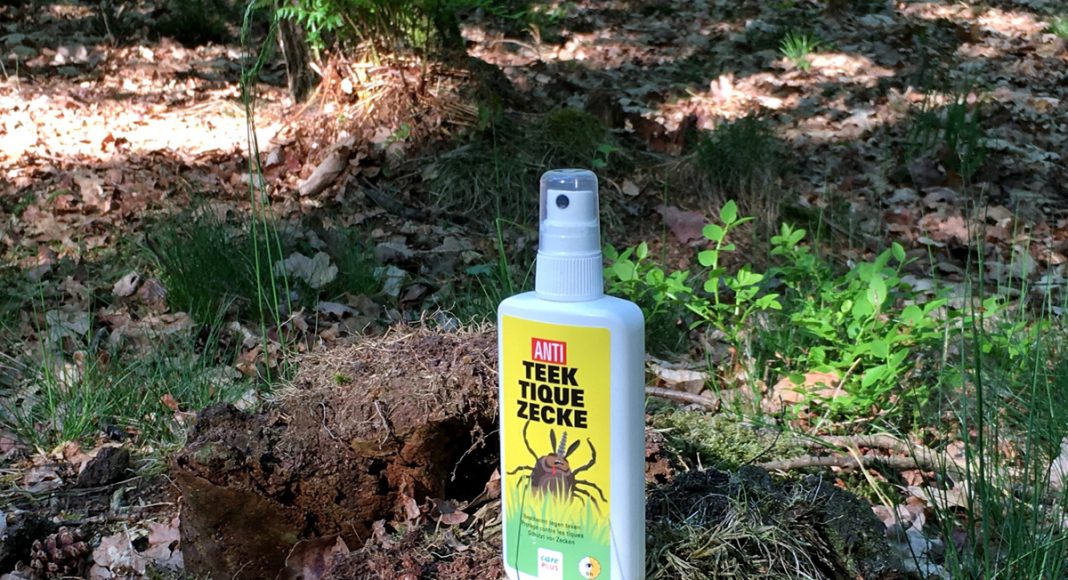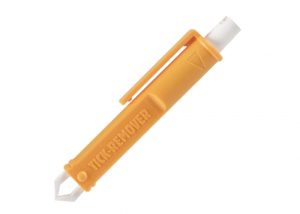 A few weeks ago I went camping with my two sons in the forests of Lochem (Netherlands). During that trip, it became clear once again that it is important to take good precautionary measures against tick bites. Despite these precautions, my son and I were – unfortunately – bitten by a tick.
A few weeks ago I went camping with my two sons in the forests of Lochem (Netherlands). During that trip, it became clear once again that it is important to take good precautionary measures against tick bites. Despite these precautions, my son and I were – unfortunately – bitten by a tick.
Our close encounter with the tick-kind, during the camping trip was the direct motivation for this post, but it has a further relevance because you can cross paths with these pesky beasts with ticks with so many outdoor activities, whether it is hiking, mountain biking or trail running.
What are the actual risks?
In some cases the risks can be quite large, ticks can cause (serious) illnesses. It is important that everyone is aware of these risks and the best protection against the dreaded tick.
A tick can infect you with Lyme disease or with the TBE virus that can lead to meningitis, encephalitis or meningoencephalitis. All are neurological disorders. It is therefore always important to protect yourself well against ticks.
What do you need to know about ticks?
- Ticks are most active at a temperature above the 8° Celsius
- Ticks can mostly be found in high grass, woodland, parks, dunes and heather.
- Ticks cannot jump, fly nor do they drop themselves from trees
- Most often a tick will reach your body via your feet or lower legs. From there it will crawl up to a place where it will bite itself into your skin.
- A tick can reside up to three days on your body.
- Often a tick bite is not noticed because the tick numbs the bite with its saliva.
- After the bite, the tick will suck itself full with your blood, but can also leave behind bacteria, viruses and parasites.
Borreliosis-bacteria
The cause of Lyme’s disease
- Not all ticks carry the Borrelia bacteria. For example just 20% of the ticks in the Netherlands are infected.
- Only ticks infected with this bacteria can cause Lyme’s disease.
- Lyme’s disease can be found in around 80 countries worldwide.
- It is estimated that 300,000 people a year in the United States and 65,000 people a year in Europe are affected by Lyme’s disease.
- A tick needs to be on your body more than 24 hours for Lyme’s disease to be transferred.
TBE-virus
(Tick-Borne Encefalitis)
- Ticks can also transfer the TBE-virus (tick-borne encefalitis) which can cause meningitis, encephalitis or meningoencephalitis.
- Ticks with the TBE-virus are often found in popular European vacation desinations such as in Eastern-Europe, South and East Germany, Austria, Switzerland, Czech Republic and in the south of Scandinavia.
- In case of infection with the TBE virus, flu-like symptoms such as fever, nausea and headaches can occur, about 1 to 2 weeks after the bite. These complaints last an average of 5 to 10 days.
- In rare cases, the illness continues to develop and the central nervous system is affected. This can cause meningitis with a chance of permanent brain damage.
- Approximately 1 to 2% of patients who become infected with the TBE virus do not survive the infection and subsequent illnesss.
Where does the tick-encephalitis virus occur?
The TBE virus is found in parts of Europe, including Germany and Austria, in Russia and certain areas in Central Asia. Approximately 2,000 patients a year in Europe and 10,000 in Russia. The risk of being bitten by a tick that is infected with TBE is highest in April to November and when hiking or camping in forested areas up to an altitude of about 1500 m.
Vaccination against TBE
The virus is transferred to humans through infected ticks. There is a vaccine that provides 95% protection. People who stay for a long time in areas where tick-borne encephalitis is common can be vaccinated. This is recommended, for example, when staying in parts of Central and Eastern Europe. More information can be found on the website of the World Health Organization.
How do you prevent a tick bite?
-
- Cover the skin as much as possible with clothing, wear impregnated socks such as the Care Plus® Bugsox, wear closed shoes and put your pants in your socks.
- Protect unprotected skin by means of an anti-tick agent, such as Care Plus® Anti-Teek, or Care Plus® DEET
- After visiting a risk area (forest, park, dunes, garden and heath) it is important to check the body carefully for tick bites.
- Another precaution you can take is to get vaccinated against the TBE virus.
What to do when you get a tick bite?
Simply remove the tick as quickly as possible with a special character remover.
Not every tick bite leads to Lyme disease or TBE, but the chance of infection does exist, so always pay attention. It is advisable to note the date and place in your diary. Keep an eye on the skin around the bite for up to three months after the tick bite and warn your doctor about suspicious symptoms.
Sources: WHO, Care Plus, RVIM
Care Plus products for prevention and treatment
Care Plus Anti-Tick 100 ml
- Spray 30% Eucalyptus Citriodora oil (Citrodiol)
- Suitable for children from 3 months
- Offers protection against ticks for up to 6 hours
€ 12,97
Care Plus DEET 30%, 40% of 50% 100 ml
- Strong anti-insect agent based on DEET
- Provides protection against ticks for up to 5 hours
From € 13,90
Bugsox Adventure
- Healthguard® impregnated with permethrin
- Comfortable at high and low temperatures
- Seamless
- Bamboo viscose keeps the feet fresh for longer
- Breathable and fast drying (Coolmax®)
- Suitable for walks or hikes on any type of terrain
€ 18,95
Tick Out Tick Remover
- Removes the tick quickly, safely and easily
- Specially developed grab jaw (also for nymphs)
- Minimal risk of damaging the tick.
- Includes two alcohol wipes to disinfect the bite after removing the tick.
€ 3,95



